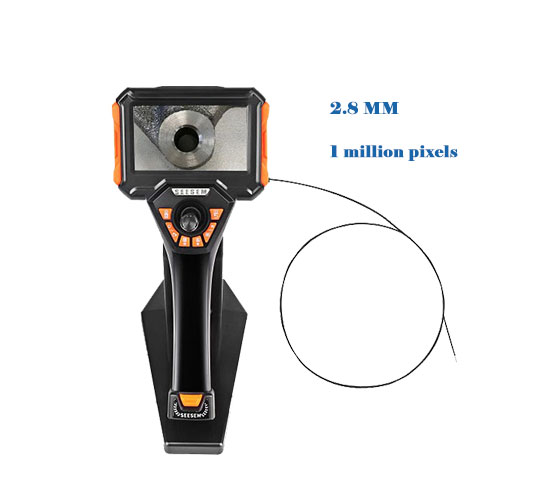Choosing an Industrial Videoscope Manufacturer
When it comes to selecting an industrial videoscope manufacturer, making the right choice is paramount for ensuring the success and efficiency of your inspection and maintenance processes. Industrial videoscopes are invaluable tools for professionals across various industries, including aerospace, automotive, manufacturing, and infrastructure maintenance. To help you make an informed decision, this article outlines key factors to consider when choosing a videoscope manufacturer.
- Quality and Reliability: The foremost consideration is the quality and reliability of the videoscope. Look for manufacturers with a proven track record of producing high-quality and durable products. You can assess this by researching the company’s history, reading customer reviews, and seeking recommendations from industry peers.
- Optical Performance: Evaluate the videoscope’s optical capabilities, such as image resolution, field of view, and depth of field. A good manufacturer should provide clear and sharp images that allow for accurate inspections. Inquire about the availability of advanced features like adjustable lighting and image stabilization.
- Probe Length and Diameter: Different applications require different probe lengths and diameters. Ensure the manufacturer offers a range of options to suit your specific needs. Customizable probes may also be essential for specialized inspections.
- Flexibility and Maneuverability: A videoscope should be easy to maneuver in various industrial environments. Look for manufacturers that offer flexible and articulating probes to access tight spaces and inspect complex structures.
- Durability and Build Quality: Industrial videoscopes often operate in harsh conditions, so durability is crucial. Inquire about the materials used, such as ruggedized cables and robust probe housings, to ensure the videoscope can withstand the demands of your work environment.
- Portability and Ergonomics: Consider the portability and ergonomics of the videoscope system. Lightweight and portable systems are more convenient for fieldwork. Ergonomic features, such as comfortable grips and intuitive controls, can enhance usability and reduce operator fatigue.
- Ease of Maintenance: Ask about maintenance requirements and the availability of spare parts. Manufacturers who offer easy maintenance procedures and readily available replacement parts can minimize downtime and reduce long-term costs.
- Software and Documentation: Examine the software provided with the videoscope. It should be user-friendly, compatible with your operating system, and offer features like video recording and image capture. Comprehensive documentation and training materials are also essential for your team’s proficiency.
- Service and Support: Evaluate the manufacturer’s customer support and service options. Consider factors like warranty coverage, repair services, and technical support availability. Responsive customer service can be crucial when you encounter issues or need assistance.
- Compliance and Certifications: Ensure that the manufacturer’s videoscopes meet industry standards and safety regulations. Look for certifications such as ISO 9001, CE, or relevant industry-specific certifications.
- Cost and Value: While cost is a factor, it should not be the sole determinant. Consider the overall value offered by the manufacturer, including the quality of the product, features, warranty, and support services. A slightly higher upfront investment may pay off in the long run with increased efficiency and reduced maintenance costs.
- References and Testimonials: Request references and testimonials from existing customers to gain insight into their experiences with the manufacturer’s products and services.
In conclusion, choosing the right industrial videoscope manufacturer requires careful consideration of factors such as quality, optical performance, flexibility, durability, and support services. By conducting thorough research and assessing your specific needs, you can make an informed decision that enhances your inspection and maintenance processes.


